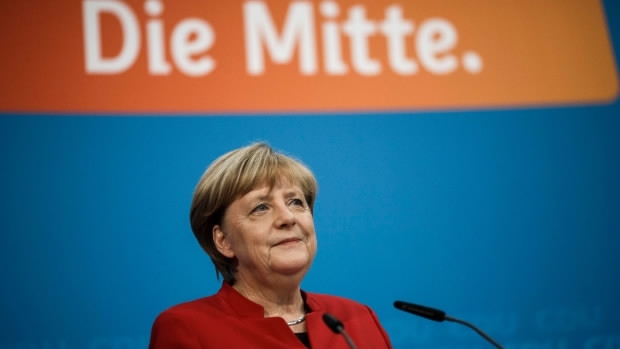
Business
21:01, 26-Sep-2017
Euro hits one-month low after worst day of 2017
CGTN

The euro slipped to a one-month low on Tuesday after its worst day so far this year, as investors worried that months of coalition talks in Germany could weigh on the economy and would make closer euro zone integration difficult.
German Chancellor Angela Merkel, who won a fourth term in elections on Sunday but now faces a tough juggling act to form a government with other parties, on Monday struck a note of caution with respect to French calls for fiscal union.
French President Emmanuel Macron, who wants a fundamental overhaul of the European Union’s single currency zone and whose ideas include creating a euro zone budget and a euro zone finance minister, will lay out his plans in a speech in Paris on Tuesday.

German Chancellor Angela Merkel won a fourth term in elections on Sunday. /Reuters Photo
German Chancellor Angela Merkel won a fourth term in elections on Sunday. /Reuters Photo
But the results of Germany’s election have forced Merkel to consider a new coalition including the liberal Free Democrats (FDP), a party critical of Macron’s ideas on Europe, and investors are therefore worried the reforms that they would welcome will not end up going through.
The euro slipped as low as 1.1811 US dollars in morning trade in London, its weakest since August 25, after falling around 0.9 percent on Monday, its heaviest one-day loss since December.
Commerzbank currency strategist Thu Lan Nguyen, in Frankfurt, said hopes for greater Eurozone integration had been the leading cause of a more than 10 percent appreciation of the euro against the dollar since the first round of France’s presidential election.

VCG Photo
VCG Photo
“The euro has been appreciating since the French elections because of the push by Macron for fiscal union,” she said, adding that “there is some uncertainty (over that) in the market now against the background of the German elections.”
The euro faced additional pressure on Monday after European Central Bank President Mario Draghi singled out currency volatility as a source of uncertainty that required monitoring and argued that “ample” ECB accommodation was still needed, because a premature and hasty move could unravel its work.
The euro had risen to a 2-1/2-year high of 1.2092 US dollars soon after the ECB’s September 7 policy meeting, with euro bulls buoyed by the central bank’s signal of an eventual end to its large bond-buying scheme, while the dollar’s weakness has also helped.
8152km
Source(s): AP
,AFP
,Reuters

SITEMAP
Copyright © 2018 CGTN. Beijing ICP prepared NO.16065310-3
Copyright © 2018 CGTN. Beijing ICP prepared NO.16065310-3